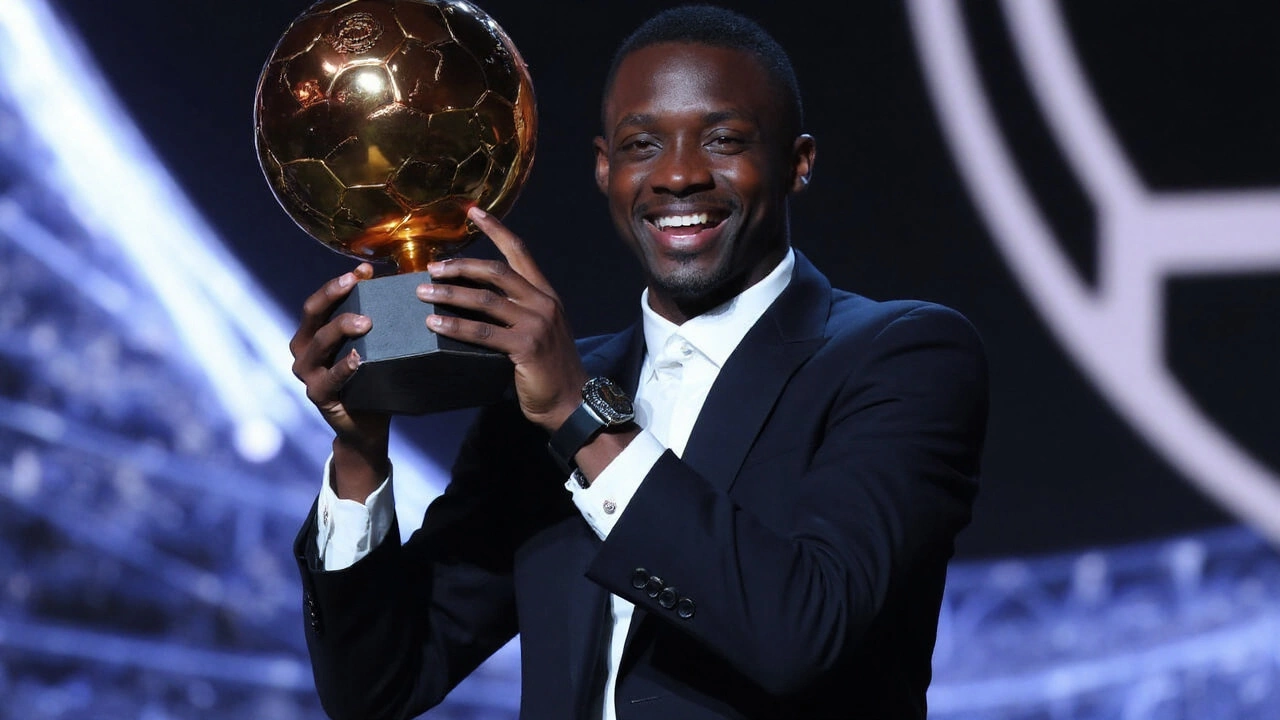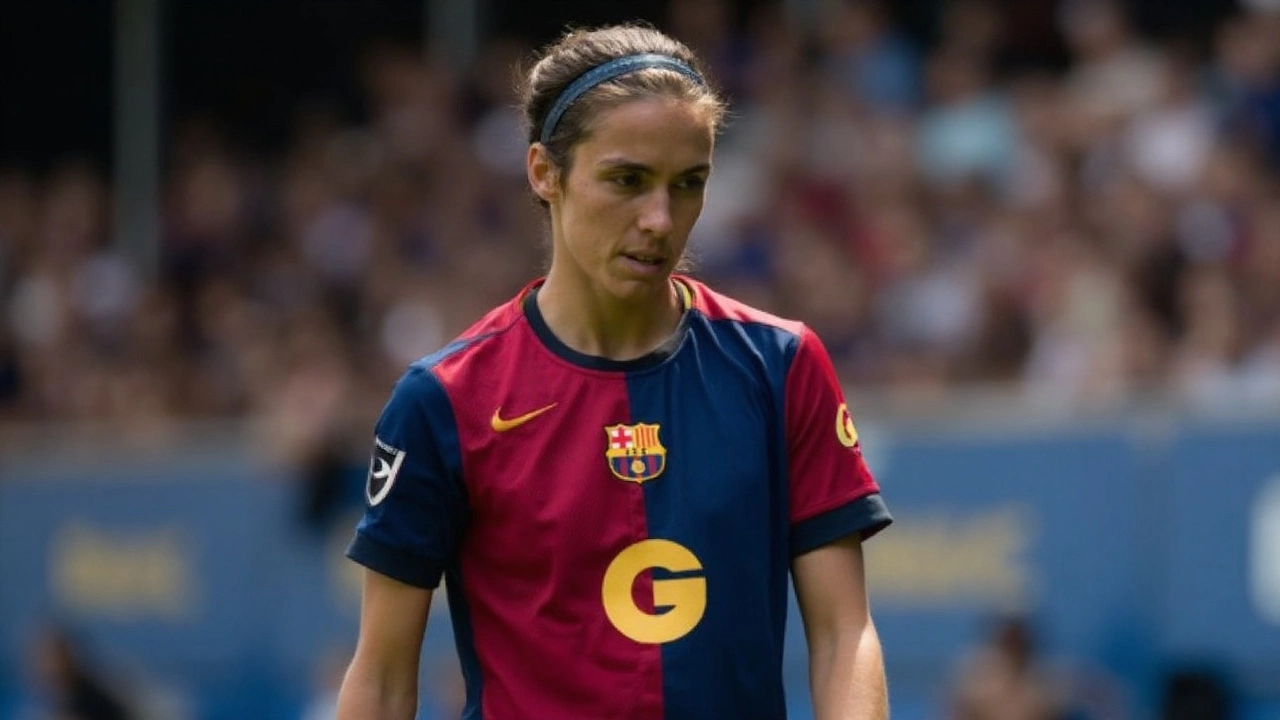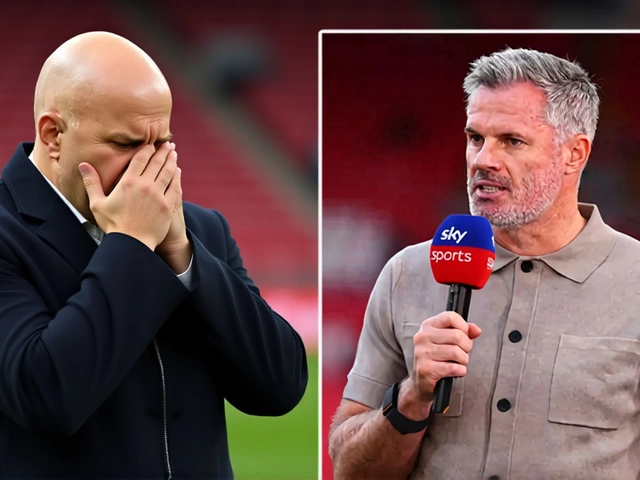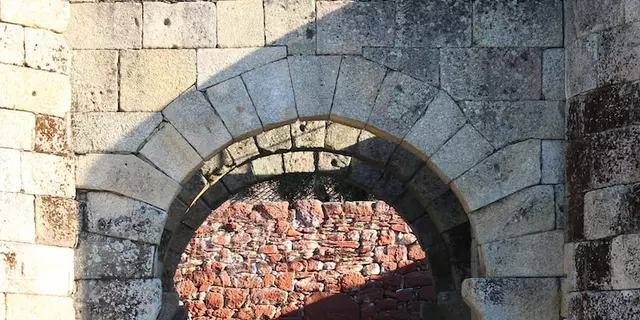
Men's Ballon d'Or: Dembélé's Rise to the Top
On a glittering evening at the Théâtre du Châtelet, the football world watched as Ballon d'Or 2025 was finally awarded to Paris Saint‑Germain’s forward Ousmane Dembélé. The 28‑year‑old Frenchman had spent the past season metamorphosing from a pace‑driven winger into the focal point of Luis Enrique’s attack. By the end of the campaign he had not only netted 35 league goals, but also steered PSG to its first ever UEFA Champions League triumph, ending a decade‑long drought that many thought impossible.
Dembélé’s impact stretched far beyond the numbers. His ability to drop deep, link play with midfield, and then explode into the box made him the centerpiece of a side that finally blended star power with strategic discipline. The Champions League final, a tense 2‑1 victory over Manchester City, saw Dembélé score the decisive strike in the 78th minute, a moment that instantly became iconic in PSG lore.
The ceremony also underscored the club’s growing influence on the global stage. Nine PSG players were nominated for the men’s award, a testament to the depth of talent Enrique has assembled. While some pundits expected a veteran like Karim Benzema to take the honor, the votes swung decisively toward Dembélé, reflecting a shift toward rewarding transformative seasons rather than career longevity.
Beyond the main trophy, the night honored several rising stars and specialists. Barcelona’s teenage prodigy Lamine Yamal scooped the Men’s Kopa Trophy, celebrated as the best young player in the world. Meanwhile, Sweden’s Viktor Gyökeres claimed the Men’s Gerd Müller Trophy after finishing the season with 27 league goals and 12 in European competition.
In goal, Gianluigi Donnarumma was named the Men’s Yashin Trophy winner, his performances for PSG in the Champions League knock‑out rounds earning him high praise for key saves in tight situations. The coaching accolade, the Johan Cruyff Trophy for men, went to Luis Enrique, whose tactical overhaul of Dembélé’s role was widely credited for the French forward’s breakthrough season.

Women's Ballon d'Or: Bonmatí's Historic Three‑Peat
The women’s side of the ceremony was equally momentous. Aitana Bonmatí, 26, lifted the Women’s Ballon d’Or for the third year running, becoming only the third player in history to achieve a three‑peat, joining legends Michel Platini and Lionel Messi. Her consistency has been nothing short of extraordinary, guiding Barcelona to a domestic treble last season and adding a third Women’s Champions League medal to her résumé.
Bonmatí’s dominance is rooted in her versatility. Whether dictating tempo from deep, delivering pinpoint passes, or arriving late in the box to finish chances, she has been the engine of a Barcelona side that has redefined the standards of club football in Europe. Her season tally of 22 goals and 18 assists placed her at the apex of both scoring and creative charts.
Internationally, Bonmatí has been a cornerstone of Spain’s golden generation. She played pivotal roles in Spain’s World Cup triumph and their UEFA Nations League victory, though the team fell short at the European Championship, succumbing to England in a tightly contested final. Her ability to perform on both club and national stages cemented her status as the premier female player of the year.
The ceremony also celebrated other female talents. Vicky López, a Barcelona teammate, captured the Women’s Kopa Trophy, highlighting the club’s pipeline of young excellence. Poland’s Ewa Pajor earned the Women’s Gerd Müller Trophy after an astonishing 43 goals in 46 appearances for Barcelona, a strike rate that dwarfs most forwards in the league.
Goalkeeping honors went to England’s Hannah Hampton, who secured the Women’s Yashin Trophy, praised for her reflexes and command of the defensive line during Arsenal’s surprise Women’s Champions League victory. Speaking of Arsenal, the English side took home the Women’s Club of the Year award, their unexpected triumph signaling a shift in power balance within women’s European football.
Beyond the trophies, the night concluded with the Sócrates Award presented to Fundación Xana for its humanitarian contributions, reminding the audience that football’s influence stretches beyond the pitch.
- Men’s Club of the Year: Paris Saint‑Germain
- Women’s Club of the Year: Arsenal
- Men’s Yashin Trophy: Gianluigi Donnarumma (PSG)
- Women’s Yashin Trophy: Hannah Hampton (Arsenal)
- Men’s Johan Cruyff Trophy: Luis Enrique (PSG)
- Women’s Johan Cruyff Trophy: Sarina Wiegman (Netherlands)
As the applause faded, one thing was clear: the 2025 awards ceremony not only celebrated individual brilliance but also highlighted the evolving hierarchy of clubs and nations in modern football. Dembélé’s rise and Bonmatí’s sustained excellence serve as benchmarks for the next generation, while the spread of awards across clubs like Barcelona, PSG, Arsenal, and emerging talents signals a competitive era where greatness can emerge from any corner of the sport.


